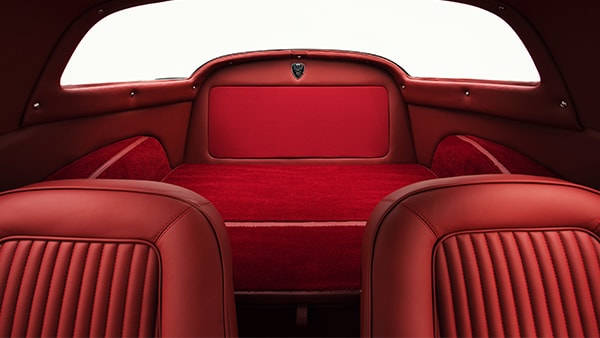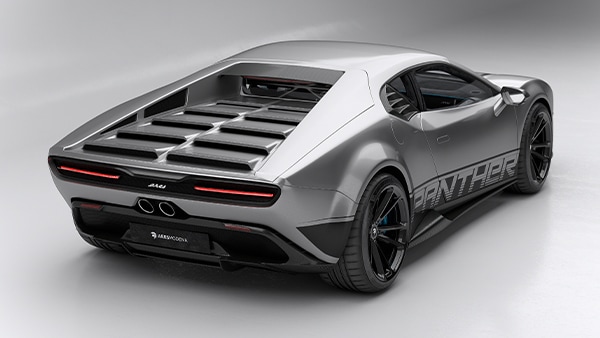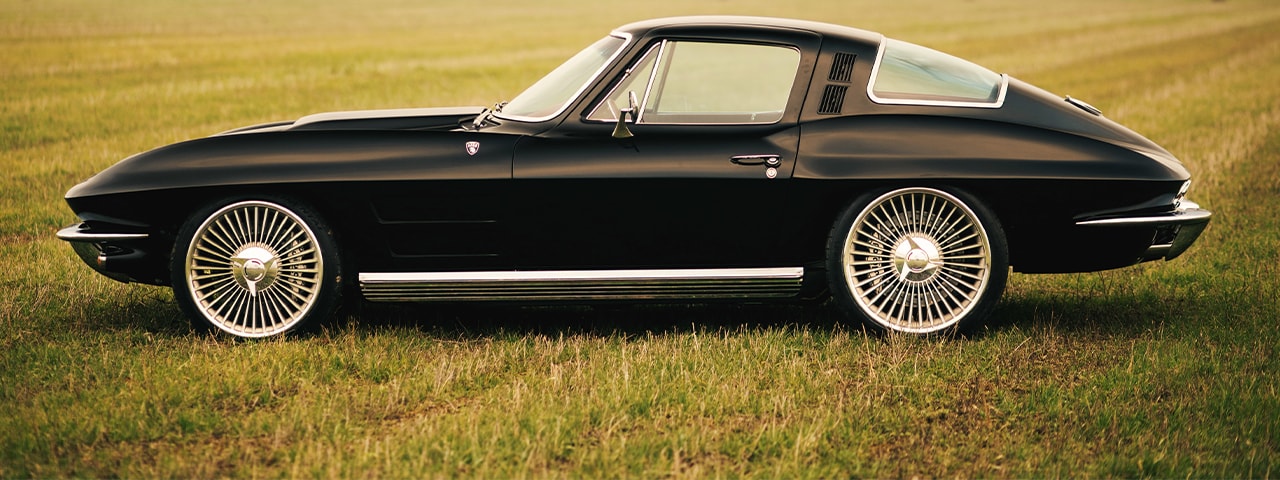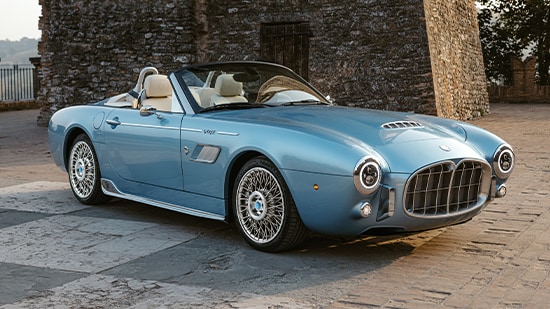Drive to Derive
Dany Bahar has become the crown prince of bespoke mobility
It’s been a busy few months for Ares. The young Modena-based car company has launched its Panther Evo supercar – with, oh yeah, pop-up headlights and a top speed of 200mph (325kph) – and a new version of its S1 supercar with gull-wing doors that can do 0-60mph (0-97ph) in three seconds. If those details aren’t enough to get a petrolhead oozing pure engine oil, the company has also launched… wait for it… an electric kick-scooter. It might make around 18mph (30kph), downhill, with a fair wind. Perplexed?
“Supercars?! I get excited by scooters,” laughs Dany Bahar, a man whose introduction to brand-building came through in-line skating, progressed to launching the Red Bull Formula One team, joining Ferrari and leaving to become the CEO of Lotus Cars, and who is now CEO and co-founder of Ares. “The smaller the product, the harder it is to create something stylish. You don’t have the surface space to play with. The fact is that, with electric motors, it’s just not that hard to make a supercar anymore.”
That’s why he sees Ares as being less of a car company and more of a mobility company making upscale versions of whatever means it is with which you want to get about. That includes an electric compact city car, Vespa-like scooter, motorbike and bicycle in the pipeline for launch next year, with boats and even drones some time in the future.
“We can’t just be another high-end car manufacturer. The world doesn’t need one of those,” Bahar insists. “But do we think the world could accommodate something like a Louis Vuitton group for very stylish mobility products? Yeah. We don’t want to be limited, either. The thing with being a ‘car company’ is that you did cars yesterday, you do cars today and you will be doing cars tomorrow. The powertrain may change, but it’s still a car. It’s limiting.”
That’s also why Ares is keen that its products are not distributed via the industry’s traditional showroom arrangement, but it does have these in all the right places – from Monaco to Beverly Hills. Instead, Ares aims to sell its exotic wheels through the same kind of high-end retail networks as fashion accessories. You’re more likely to pick up one of its compact city cars in a department store along with lipstick or some new speakers rather than in a grim edge-of-town industrial park.


Indeed, Ares has some track record in taking the road less travelled. In the nine years since it was established, it has focused on working as a coachbuilder to become the world’s biggest by volume (it claims), providing private individuals with bespoke personalisation and re-builds of what were already considered some of the world’s rarest cars.
Bahar says he knew he was on to something when he was having lunch with a Saudi prince in Dubai one day. Said prince was very proud of the £2m Bugatti Veyron he had driven to the restaurant until a nearly identical one pulled up outside. The prince tossed Bahar the keys and told him to do what he wanted to the car, money no object – just make it unique.
Time has since allowed Bahar to invest in the company’s technology, its manufacturing systems and, most importantly, the engineering expertise of the right people. Now it can produce its own cars and fancy wheels in other forms, such as the likes of the Panther; an unabashed if frankly stunning homage to the beloved De Tomaso Pantera sportscar of the ’70s and ’80s.
“You know before you take an exam in school that you have to revise and prepare yourself, and modifying other cars successfully has been our preparation time. We can’t do everything, but we do want to do more of our own products from scratch and establish our styling language. That’s not quite there yet, but we want to stand out,” he enthuses.
“I think, in this age of the electric car, it’s increasingly hard even for professionals to tell one car apart from another just 50 metres away,” he laments. “Everything looks the same. That’s odd because, given that there aren’t really any technical limitations, it would be as easy to make a car look different as it is to make it look the same.”
Bahar argues electrification has sent the car industry into something of a spin and it’s having to find its design feet again, much as it has with the birth of each major new car category. “But if you just try to make a car that the masses like, you inevitably end up with something lukewarm,” he says.
Look to the Koreans and the Chinese, he says, building giant national automobile industries blissfully and creatively unburdened by heritage or received wisdom. Does he think of Ares in the same way? Certainly. Bahar argues that he is trying to give what he calls his “exotic products” a fresh vision, and more transparently too. He’s not trying to tempt high-net-worth types away from Aston Martin or Lamborghini.
“The people we sell to, we’re never their first purchase – we’re maybe their tenth, fifteenth, twentieth car,” says Bahar. “We don’t have to prove anything to them. They know cars. They know when they buy a Ferrari that half the parts used are [from other brands] in the group, or that our S1 is based on a Corvette, or that it’s not the quickest and not the most advanced car. They do want the smile it puts on their face when they drive it, though.”
Indeed, while the company intends to keep a limited modification business going for a couple of years – notably in converting classic Land Rover Defenders into Land Rover Defenders And Then Some and four-door Bentley Mulsannes into two-door coupés – the road ahead will be more about doing its own thing in its own very personalised way. He knows this is a challenge.
“It’s very costly to make your own products from scratch. You need a lot of competencies, the right supply chain, everything much more professional,” says Bahar. “But making your own products from scratch is, in a way, easier than modification because you’re working with an assembly of parts designed to fit. By contrast, modification is mostly about hand-building and improvisation, and each product is its own thing. And, really, I won’t miss it. You’re working with existing parts and the more parts you change, the more potential headaches you get.”
He is, he says, much more interested in the not inconsiderable if singular headache of reimagining the world of luxury vehicles. What an interesting headache to have.
Picture Credit: Ares Modena

 Dany Bahar has become the crown prince of bespoke mobility.
Dany Bahar has become the crown prince of bespoke mobility.

